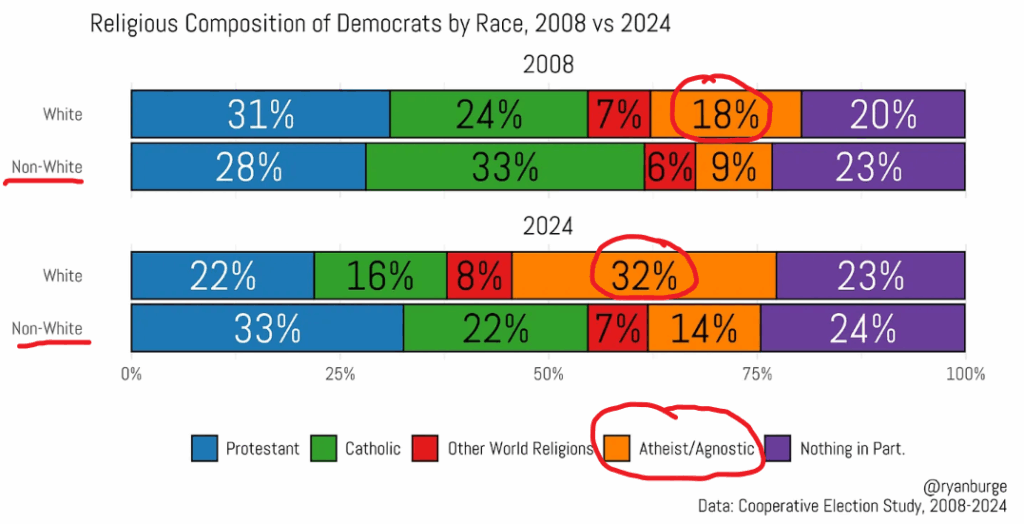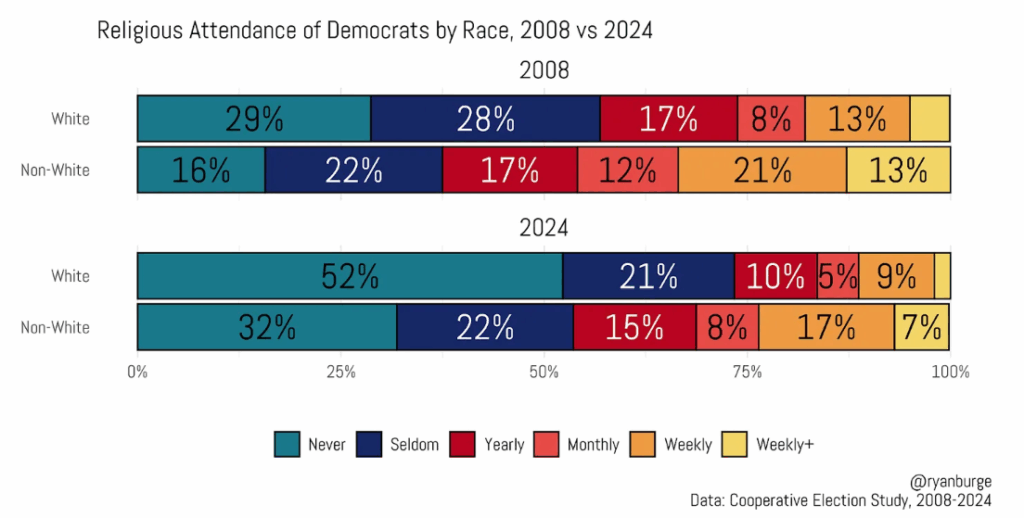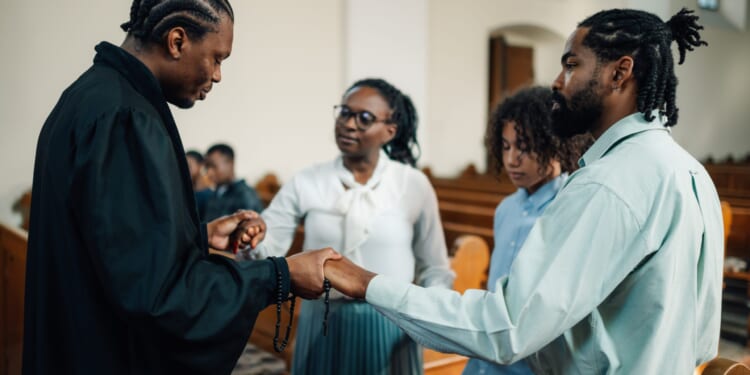Democrat voters in America have starkly different views than Republicans on important social issues. New data is demonstrating another dramatic and consequential difference between Red and Blue Americans: Democrats are far more secular and that gap is only increasing.
Ryan Burge, a statistician and professor at Washington University in St. Louis, has posted a new report detailing just how stark this difference is. In fact, Professor Burge was not shy in titling his piece, “The Democrats Have a Religion Problem.” His subtitle is just as damning: “Most Americans are Still Christians – Democrats Seen to Have Forgotten.”
Burge opens his report with what he describes as “a true, simple, and profound fact.” He states that fact in two blunt parts.
- Eighty percent of the people who voted for Donald Trump identify as some type of Christian. It was 48% for Harris voters in 2024.
- Just 17% of Trump voters identified as atheist, agnostic, or “nothing in particular.” Nearly half of Democrats in 2024 (45%) were non-religious.
These are stark differences, indeed. The drift toward secularism among Democrats from 2008 to 2024 looks like this.

Non-white Democrats have moved toward protestant Christianity since 2008, largely moving away from Catholicism. In terms of church or synagogue attendance, the differences look like this.

A remarkable 83% of white Democrats either never or very seldom attend any religious weekly meeting. Only 9% attend weekly services and 5% attend monthly. The same never/seldom attending number for non-white Democrats is 69%. However, the corresponding percentages for Republicans are 58% who never or seldom attend, while 32% attend weekly and 10% attend monthly.
This marks a 30% difference between white Democrats and all Republicans who never or seldom attend religious services, a 72% difference of those who attend weekly and a 50% split in those who attend monthly. That is a lot of secularism among white members of the Blue party. In fact, Burge calls it the “racial God gap” among Democrats and the rest of the country.
He also notes that Republican voters are largely unified in their national values. Burge states, “If you’re working for the GOP, something along the lines of ‘God, Country, and Traditional Family Values’ resonates with nearly all your voters.” He reports a substantial racial and religious divide among Democrat voters. “Essentially, the party now has a large cohort of non-religious white voters alongside a diverse coalition of voters of color who remain deeply religious.”
White and Hispanic Democrats have gotten increasingly more secular, essentially doubling, while their Black and Asian voters have not shifted more secular by much between 2008 and 2024. Burge explains, “In other words, the ‘average American’ looks a lot like the ‘average Democrat of color’ in terms of religious activity.” But their white members are increasingly secular and liberal.
So, among Democrat politicos, Burge believes “a message of faith and values will probably turn off as many voters as it attracts” because “the party now has a large cohort of non-religious white voters alongside a diverse coalition of voters of color who remain deeply religious.”
“Democrats can’t win national elections on the backs of the non-religious alone, but they’ve also ceded large swaths of the Christian vote to Republicans. That leaves them with a coalition that risks alienating either Christians of color or secular whites, depending on how the message is framed,” Burge concludes.
Serious faith is a very important part of political power and appeal because the Christian faith informs so many serious moral issues. Republicans would do well to appreciate how important values voters driven by faith are to their future successes at the ballot box.
Democrats have an increasingly real electoral problem on their hands with their growing white secularist base as they try to hang onto religiously affiliated voters of color. In August, The New York Times documented how serious a problem this is for Democrats who are “hemorrhaging voters long before they even go to the polls.”
Democrats must solve their “racial God gap” fast if they hope to remain a viable party. It is very unlikely that they will, though, as they continue to play to the more extreme parts of their base.
Image from Shutterstock.











